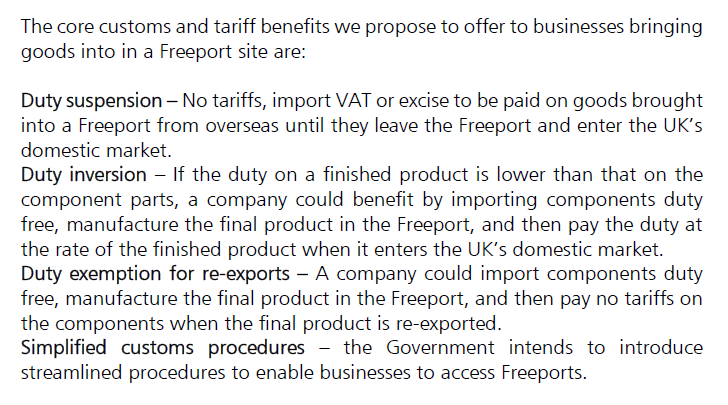on.ft.com/39T0WQu
nusghani.org.uk/news/freeports…
Where you arbitrage the difference between tariffs on inputs (ingredients/raw materials/components) against finished products. /2
So what about in the UK after Brexit? Does it have these opportunities for arbitrage?
To answer that question you have to look at UK tariff rates? /4
How much of UK imports after Brexit create space for inversion? You can read the analysis here, but it is tiny. Miniscule /5
blogs.sussex.ac.uk/uktpo/2020/07/…
Of the 20 most imported inputs in the UK (covering 40% of UK’s imports of intermediate goods) 12 were duty-free 0 had a tariff of more than 4% /6

Look at that list. Duty "suspension" and "inversion" are actually one thing, and as the benefits are utterly negligible/8
And 'simplified customs procedures', given the minimal upsides, will themselves give minimal advantages.
So what IS the point of freeports? /9
It lists other stuff such as... "speed up planning processes...tax breaks...regulatory flexibilities..." and other drivers of "innovation"...
But that begs another Q! /10
Or is the idea to have regulatory 'free zones'? Are freeports really just 'enterprise zones' in disguise?
But that begs yet another Q? /11
So again, what's the point, if not tariff/regulatory arbitrage? /13
assets.publishing.service.gov.uk/government/upl…

ft.com/content/122cdc…
And I can see how Freeports can be used to hand a fillip to deprived areas/18
Either way, we need cogency. ENDS
ft.com/content/122cdc…



